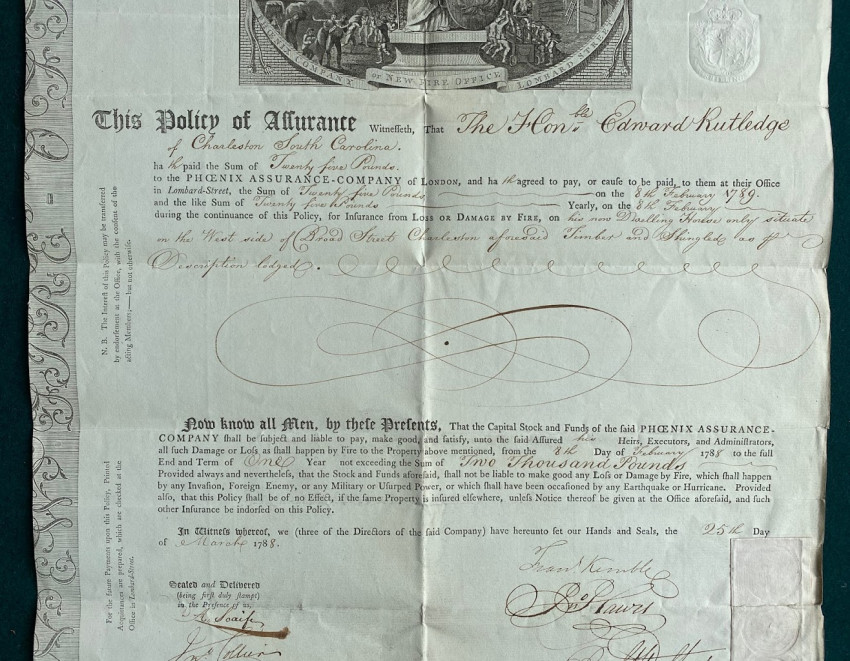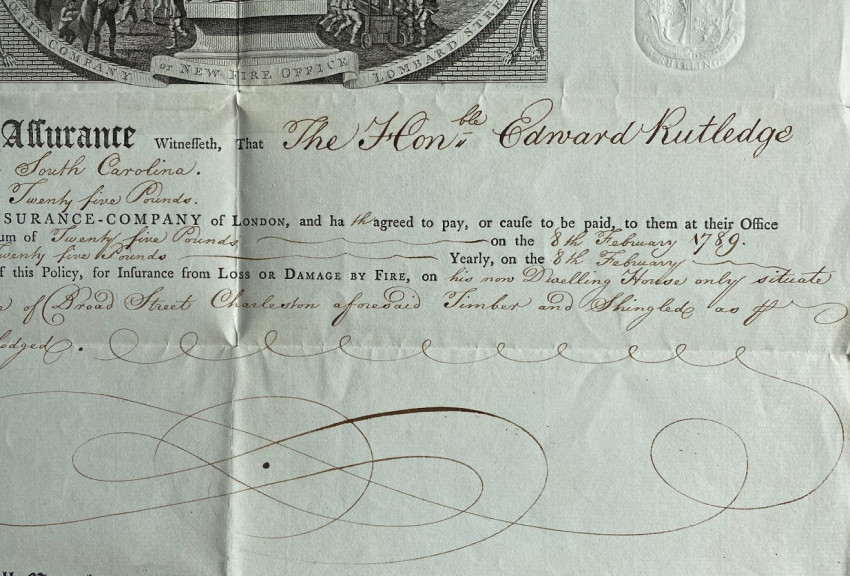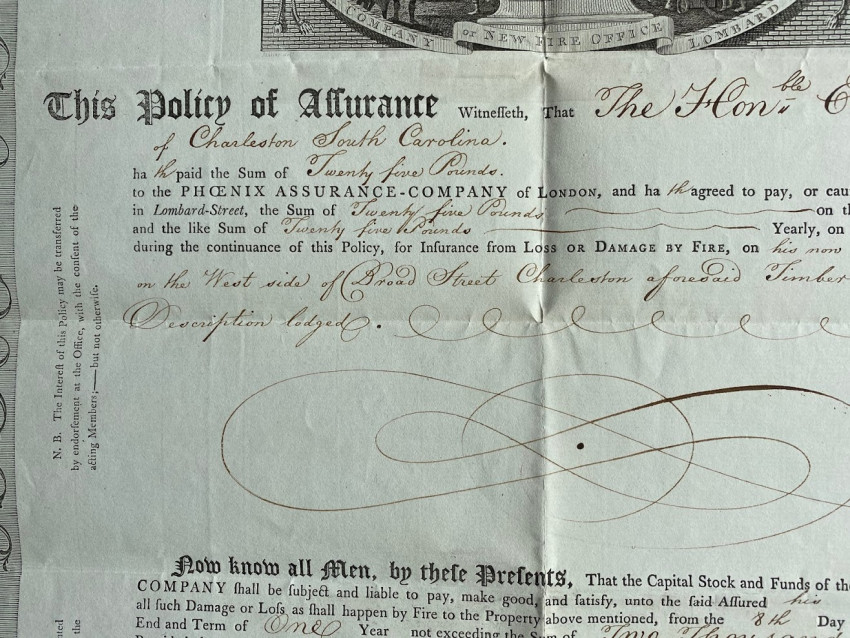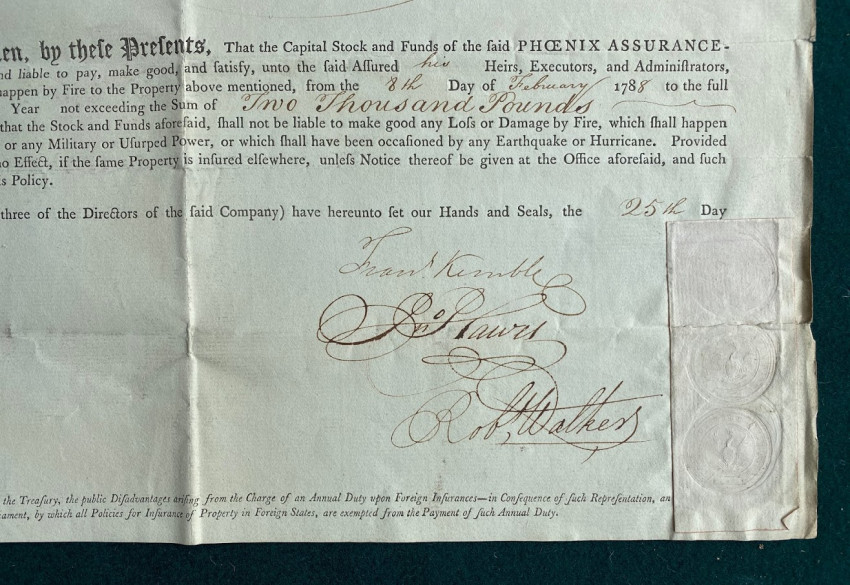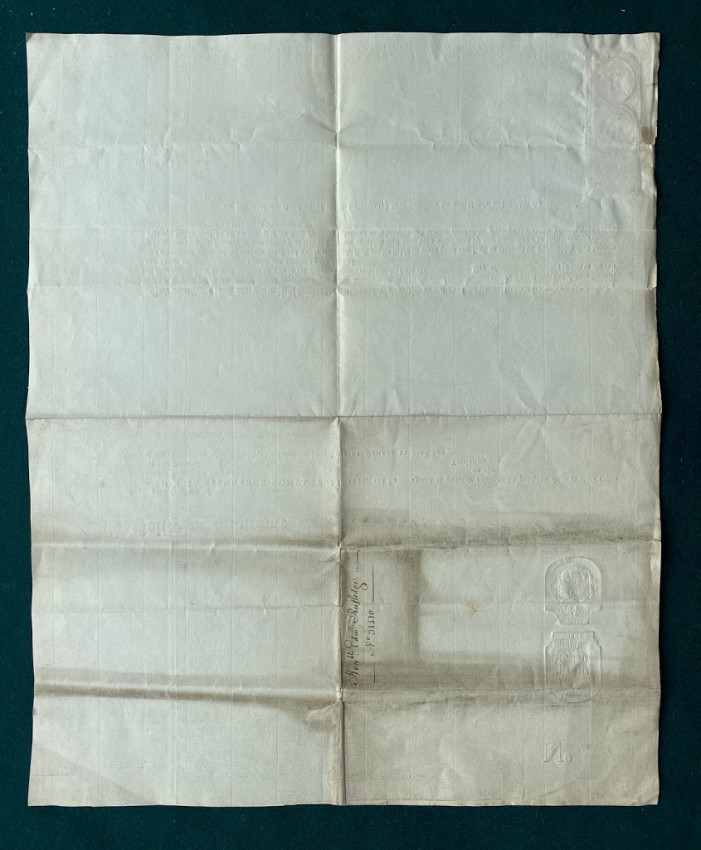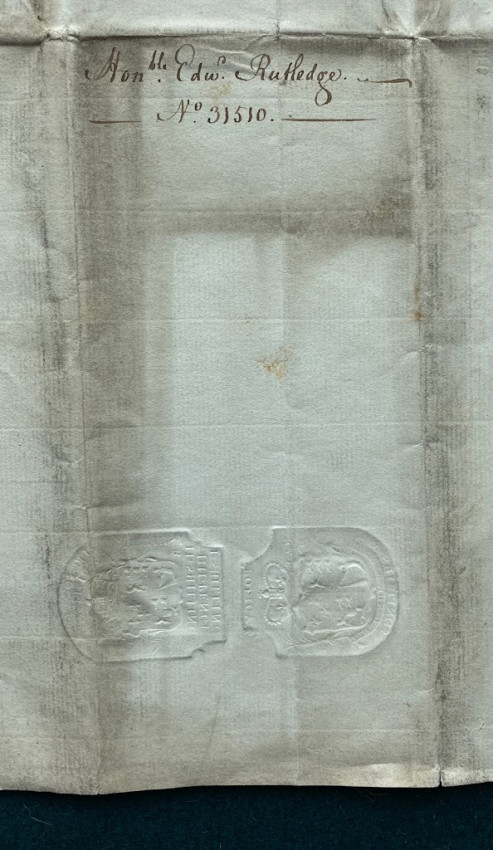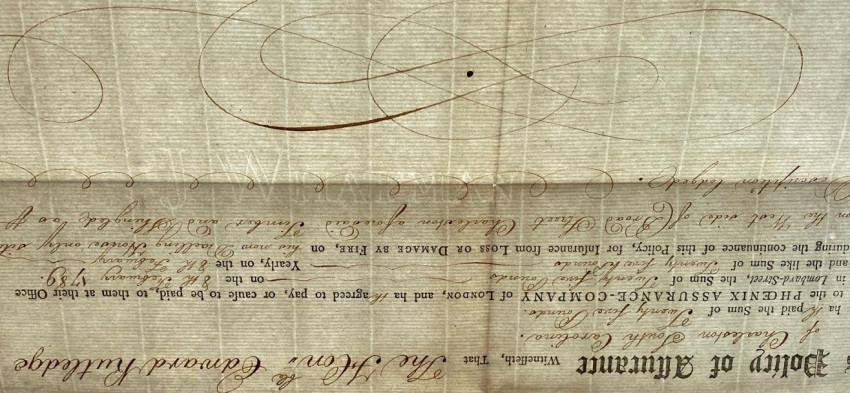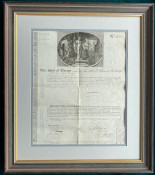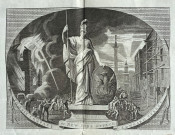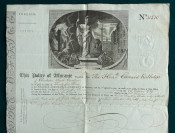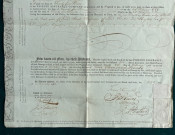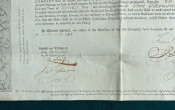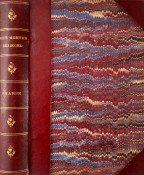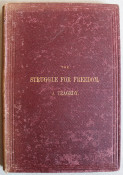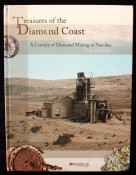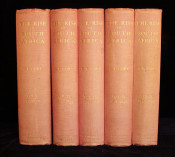Edward RUTLEDGE (1749-1800, signer of the Declaration of Independence). – PHOENIX ASSURANCE Company, of London.
An original engraved, letterpress and manuscript certificate, number 31510, of a ‘Policy of Assurance’ confirming that “The Honble. Edward Rutledge of Charleston South Carolina” has agreed to pay 25 Pounds a year in exchange “for Insurance from Loss or Damage by Fire, on his now [sic.] Dwelling House only situate on the West side of Broad Street Charleston aforesaid Timber and Shingled as per Description lodged”, the coverage commencing on the 8th February 1788, the premium being due annually on the 8th February. Single sheet (18 ½ x 15 1/4 in; 470 x 387mm). The liability not exceeding “Two Thousand Pounds”.
Somewhat ironically, it is noted that the coverage shall not include “Loss or Damage by Fire, which shall happen by any Invasion, Foreign Enemy, or any Military or Usurped Power”. Wisely the insurers also exclude any damage “which shall have been occasioned by any Earthquake or Hurricane”, with two duty stamps, the company seal beside each of the signatures of three directors of the company (Francis Kemble; John Hawes and Robert Walker), and the signatures of the two witnesses (“A. Scaife”; “Jno. Collier”), dated “25th Day of March 1788”.
An attractive, fascinating and quite early example of the resumption of trade between the United States and Great Britain: the ‘Treaty of Paris’ was not ratified until May 12 1784, and less than four years later a prime mover in the fight for Independence was quite openly doing business with the United States’ former enemies. Edward Rutledge ”was an American politician, and youngest signatory of the United States Declaration of Independence. He later served as the 39th Governor of South Carolina.
Like his eldest brother John Rutledge, Edward was born in Charleston. He was the youngest of seven children … born to Dr. John Rutledge and Sarah Hext. His father was a physician and colonist of Scots-Irish descent; his mother was born in South Carolina and was of English descent. Following his brothers John and Hugh he studied law in London at the Inns of Court. In 1772 he was admitted to the English bar (Middle Temple), and returned to Charleston to practice. He was married on March 1, 1774 to Henrietta Middleton (17 November 1750 – 22 April 1792), daughter of Henry Middleton. … Rutledge had a successful law practice with his partner, Charles Cotesworth Pinckney. He became a leading citizen of Charleston…. During the American Revolution Rutledge served along with his brother John representing South Carolina in the Continental Congress. He worked to have African Americans expelled from the Continental Army. Although a firm supporter of colonial rights, he (as a delegate) was instructed initially to oppose Lee's Resolution of independence; South Carolina's leaders were unsure that the time was "ripe." At age 26 he was the youngest delegate to sign the Declaration of Independence.
He returned home in November 1776 to take a seat in the General Assembly. He served as a captain of artillery in the South Carolina militia, and fought at the Battle of Beaufort in 1779. In May 1780, Rutledge was captured along with his co-signers of the Declaration of Independence, Arthur Middleton and Thomas Heyward during the siege of Charleston. They were released during a prisoner exchange in July 1781.
After his release he returned to the General Assembly, where he served until 1796. He was known as an active legislator and an advocate for the confiscation of Loyalist property. Like John Rutledge, Edward Rutledge opposed the Jay Treaty and the Anglophilic stance he perceived in the Federalist Party. As an elector in the 1796 Presidential Election, Rutledge voted for the two Southern candidates, Republican Thomas Jefferson and Federalist Thomas Pinckney. Rutledge had not been close with the eventual victor John Adams dating back to their days in the Continental Congress, but he approved of Adams's defense policies towards France during the Quasi-War. The opposition afforded Adams's measures by Vice President Jefferson and the Congressional Republicans angered Rutledge because he now saw the Republicans as more partial to France than to American interests, a situation similar to the pro-British feelings he sensed in the Federalists during the Jay Treaty debates.[8] Rutledge thereafter ceased communication with Jefferson. Rutledge served in the state senate for two years, then was elected governor in 1798.
Governor Rutledge, while attending an important meeting in Columbia, had to be sent home because of his gout. He died in Charleston before the end of his term. Some said at the time that he died from apoplexy resulting from hearing the news of George Washington's death.” (Wikipedia).
- Overall Condition: excellent
- Size: 18 ½ x 15 1/4 in; 470 x 387mm
- Sold By: Shadowrock Rare Books
- Contact Person: Adam Langlands
- Country: United States
- Email: [email protected]
- Telephone: 001-860-248-1547
- Preferred Payment Methods: Paypal, US$ checks and wire transfers, major credit cards through paypal
- Trade Associations: AA Approved

Similar lots in the current auction View all
Click on an item to view more details and to bid.





